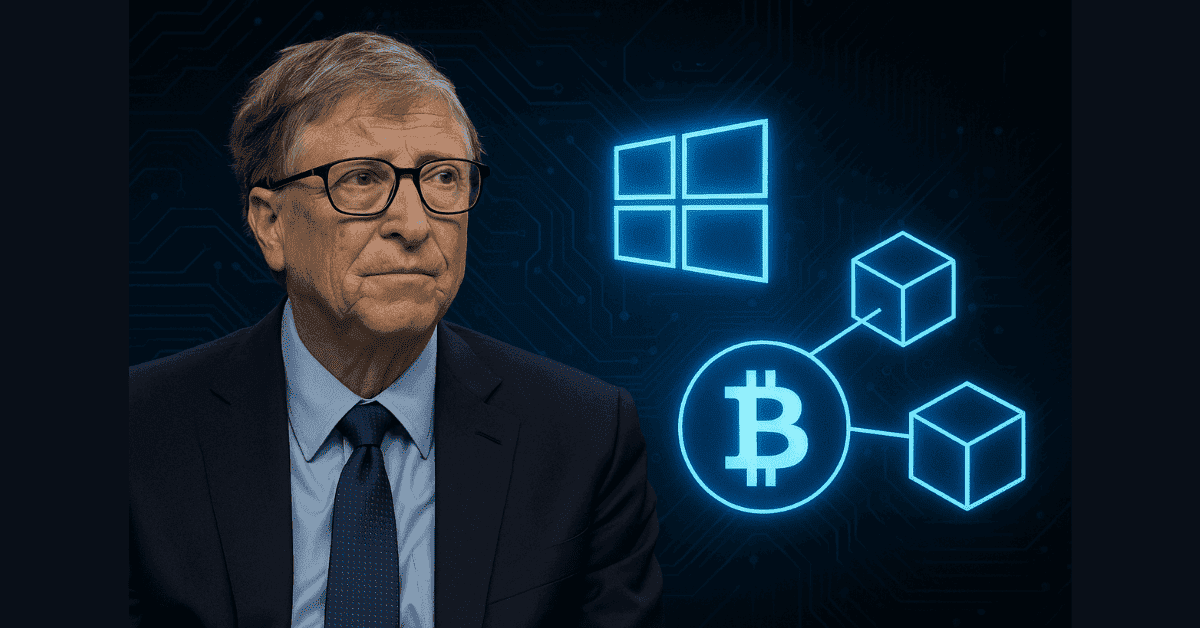
The Man Behind Microsoft and the Blockchain Trust Dilemma
1. Who is Bill Gates in the Tech Era?
William Henry Gates III, better known as Bill Gates, is a founding icon of the late 20th-century technology revolution. As the co-founder of Microsoft — the company behind the Windows operating system and the mainstream adoption of personal computers — Gates not only helped transform how we live and work, but also built a vast fortune from traditional software innovation.
However, amid the rise of Web3 and the explosion of digital assets, Gates has become a controversial figure due to his skeptical stance on cryptocurrencies, particularly Bitcoin. Despite his criticisms, he has quietly invested in foundational technologies such as blockchain applications in supply chains and clean energy.
2. From Legacy Software to Crypto Caution
While Gates played a key role in democratizing personal computing, he has not embraced blockchain or crypto with the same enthusiasm. On the contrary, he has publicly warned about the speculative nature of cryptocurrencies, often questioning their intrinsic value. Gates once stated, “If you’re not as rich as Elon Musk, you shouldn’t be buying Bitcoin.”
Nonetheless, from another angle, he has invested in technologies that could integrate well with blockchain, such as AgTech (digital agriculture), next-generation nuclear energy (TerraPower), and global healthcare data platforms — where blockchain could provide authentication and data integrity.
3. Traditional Wealth in a Rapidly Changing World
As of 2024, Bill Gates remains in the top 10 richest individuals in the world, with a net worth exceeding $126 billion, largely driven by his Microsoft shares and investments in real estate, agriculture, and energy. Unlike younger billionaires such as Vitalik Buterin or Changpeng Zhao (CZ) — who were born from the blockchain era — Gates keeps a deliberate distance from the volatile crypto markets.
However, owning hundreds of thousands of acres of farmland and investing in AI and energy infrastructure reveals he is laying the groundwork for ecosystems where blockchain could eventually play a key role — from verifying food origins, to smart contracts for farmers, or stablecoins used in remote trade networks.
4. Controversies and Criticism: Can Technology Shield the Truth?
Bill Gates' public image is not without blemish. A series of personal scandals, internal controversies at Microsoft, and alleged ties to figures like Jeffrey Epstein have raised questions about the authenticity of his “philanthropic billionaire” persona. Some observers argue that his charity work is more of a public relations strategy or a tax optimization mechanism.
In the crypto community — which champions transparency and decentralization — these criticisms only widen the perceived gap between Gates and the blockchain world. Web3 advocates often view Gates as a symbol of “Web2 legacy”: centralized systems prone to manipulation and lacking openness.
5. Post-Microsoft Vision: Is There Room for Web3?
Although Gates stepped down from executive roles at Microsoft in 2014 to focus on philanthropy, he remains one of the most influential figures shaping global tech. The big question is: will he ever engage with the Web3 movement — and if so, how?
Some experts believe that blockchain and crypto — when separated from speculative behavior — could align with Gates’ long-term goals: reducing poverty, improving healthcare, and advancing education. Applications like DeSci (Decentralized Science), DAOs for nonprofit communities, or NFTs for learning credentials may support the “tech for good” philosophy that Gates has long promoted.
6. Conclusion
Bill Gates represents a generation of centralized, standardized technology. While the world transitions toward decentralized, transparent, and community-led models — as embodied by crypto and Web3 — Gates maintains a strategic, cautious, and long-term investment mindset. Though not a pioneer in blockchain, his legacy continues to shape how technology evolves — and perhaps one day, it will intersect with crypto in his own unique way.